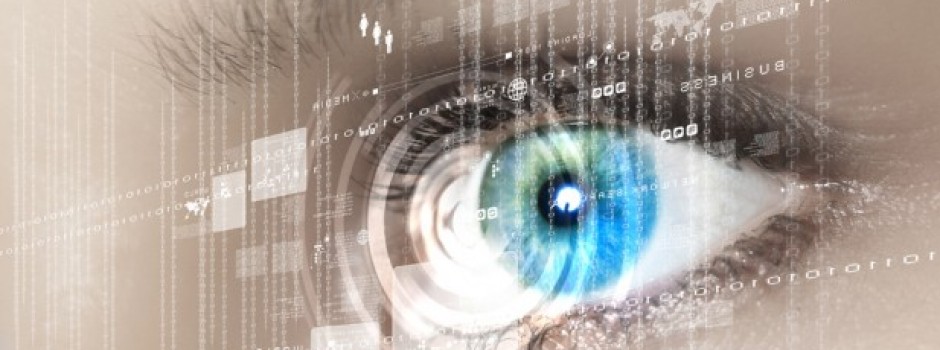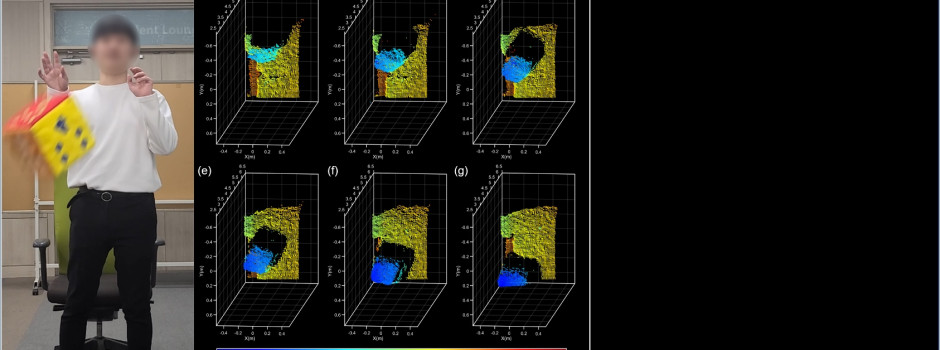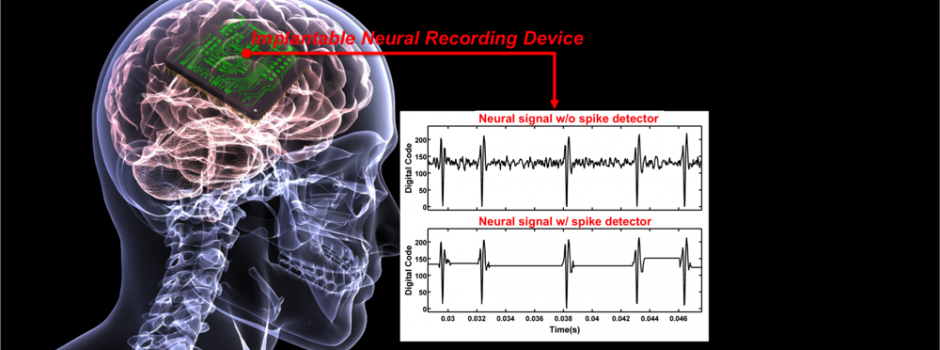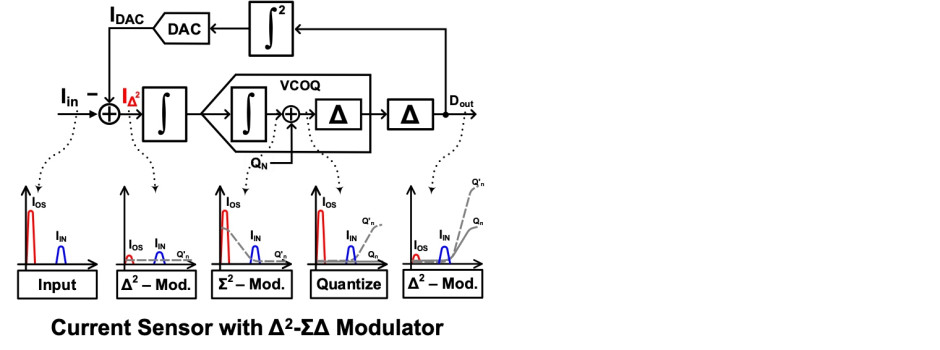



Greetings!
Bio-inspired Advanced Sensors (BIAS) Laboratory dreams of innovative microsystems for implementing future perception beyond five senses of human. We aim to realize them by using modern analog-mixed circuit design techniques, so that people can interface with nature, machine and even their own bodies with many electronic devices seamlessly.Flash LiDAR Sensor
We develop a flash LiDAR sensor featuring an in-pixel hTDC based on a delta-intensity quaternary search (DIQS) technique. The proposed hTDC needs a minimum size of memory, two 9-b counters, realizing an 80×60 LiDAR without using a 3-D stacked process. It also attenuates common-mode noise, accomplishing real-time acquisition of depth images with 30 fps in a 9-m range at 30-klux background light. Sub-µW Neural Recording Device
The spike signal in neural activities is an essential event but is fired rarely so that the spike detection can compress large amount of data efficiently. The proposed delta-modulation doesn’t only compress the signal dynamic range, but also enable to extract the amplitude and frequency component of the neural signal, recognizing the spike in the analog domain.Analog IC Design
We develop various analog ICs including a ΔΣ-modulator, a temperature sensor, and an oscillator. The proposed Δ2-modulation realized by the 2nd-order IIR filter on the feedback significantly attenuates the magnitude of input signals, enhancing the DR and linearity. It also implemented with an amplifier-less structure and the PWM current DAC, achieving the smallest active area of 0.0308 mm2 with a high energy efficiency of 4.15-pJ/conv FoMw.Latest News
Jung-Hye received the best paper on sensory systems runner-up award at ISCAS 2024!
Posted on 27 May 2024
Jung-Hye presented her paper entitled “An Indirect Time-of-Flight Sensor with Adaptive Multipl
Welcome aboard to BIAS Lab.
Posted on 05 Jan 2024
Five students, Jae-Sung Lee, Do-Hyeon Lim, Jimin Ye, Yeongjin Mo, and Minsaeng Kang, joined our lab
Su-Hyun defended her PhD dissertation.
Posted on 19 Dec 2023
Su-Hyun Han completed his PhD dissertation successfully. She has been focusing on the development of
Popular Posts
No Responses.
No Responses.
No Responses.
Copyright©UNIST BIAS Lab. All Rights Reserved.
